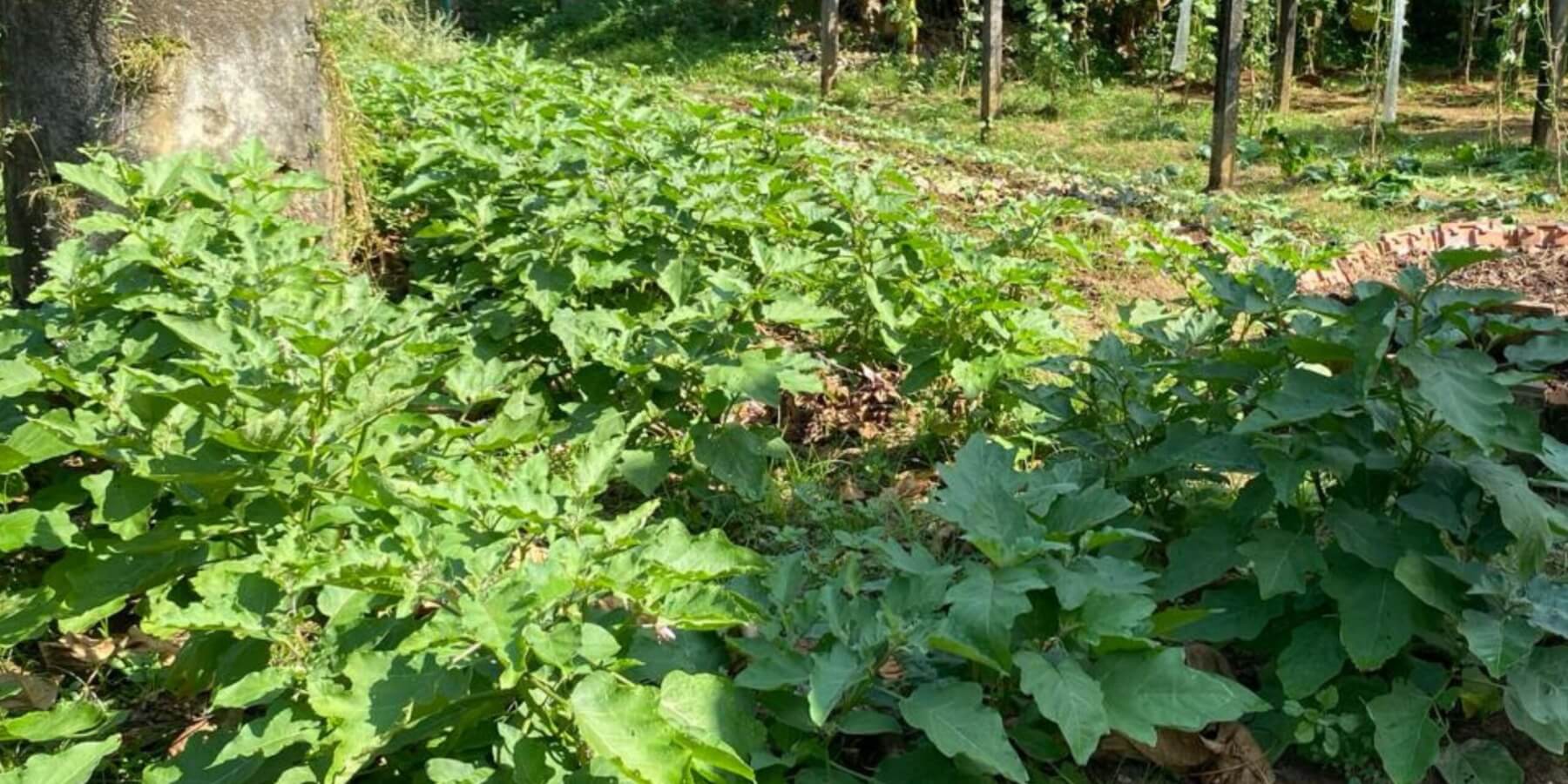Economic Impact of Organic Agriculture on Smallholder Farmers in Sri Lanka: Analyzing Financial Benefits and Challenges
Organic agriculture has been gaining traction globally due to its potential environmental benefits and promise of healthier food production. In Sri Lanka, the shift towards organic farming, particularly for smallholder farmers, is driven by both market demand and government policies. As a country, Sri Lanka’s ambitious goal to become the world’s first fully organic nation has created both opportunities and challenges for farmers.
Importance of Agroecology in Organic Agriculture
Agroecology, the science of applying ecological concepts to agricultural systems, is the foundation of organic agriculture. It emphasizes biodiversity, soil health, and the natural interactions between plants, animals, and the environment. This holistic approach is critical for the sustainability of organic farming, as it focuses on reducing the need for external chemical inputs like pesticides and synthetic fertilizers. In contrast to conventional farming methods, agroecology promotes the use of natural fertilizers, crop rotation, and polyculture, creating a self-sustaining system that restores soil fertility, enhances water retention, and reduces the risks of pests and diseases.
For smallholder farmers in Sri Lanka, agroecology is particularly relevant. The country’s agricultural lands are often fragmented, with limited access to expensive chemical inputs. By adopting agroecological practices, these farmers can reduce their dependency on costly external resources and shift towards more affordable and sustainable farming methods. In addition, agroecology encourages the preservation of traditional knowledge and local seeds, which helps protect Sri Lanka’s biodiversity and cultural heritage.
Financial Benefits of Organic Agriculture
1.Premium Prices for Organic Produce
One of the primary financial incentives for smallholder farmers to adopt organic farming practices is the premium price that organic produce can command in the market. Organic products often sell for 20% to 50% more than their conventional counterparts, depending on the crop and market conditions. This price premium can significantly increase farmers’ income, especially for those cultivating high-value crops like spices, tea, and vegetables that are in demand in both local and international markets.

Wild fruits in Sri Lanka © Renaissance Sri Lanka
In Sri Lanka, the growing awareness among consumers about the health benefits of organic food has increased demand for organic products, particularly among urban middle-class populations and export markets. Farmers who successfully transition to organic farming and obtain organic certification are better positioned to tap into these lucrative markets.
2. Lower Input Costs
Organic farming emphasizes the use of natural inputs, such as compost, green manure, and organic pest control methods. For smallholder farmers who often struggle with the high costs of synthetic fertilizers and pesticides, the shift to organic farming can lead to significant cost savings. Studies have shown that the reduction in input costs can be substantial, particularly in the long term, as farmers become adept at producing their own organic inputs.

Compost fertilizer © Renaissance Sri Lanka
Additionally, many smallholder farmers in Sri Lanka have access to traditional knowledge of organic practices, such as crop rotation and the use of indigenous plant varieties, which can further reduce the reliance on expensive inputs. These practices not only cut costs but also contribute to soil health, leading to better yields over time.
3. Access to Organic Certification and Niche Markets
Obtaining organic certification can be a game-changer for smallholder farmers in Sri Lanka. Certified organic produce is in high demand in both local and export markets. Certification provides a guarantee of quality that is valued by consumers, allowing farmers to access niche markets where they can sell their produce at higher prices.
For instance, Sri Lankan organic tea and spices are highly sought after in international markets. Farmers who achieve certification can significantly increase their income by exporting their produce. Furthermore, some organic certification programs also offer technical assistance and market access support, helping farmers overcome the challenges of the transition period.
Challenges Faced by Smallholder Farmers
1. High Initial Transition Costs
While the long-term benefits of organic farming are clear, the initial transition period can be financially challenging for smallholder farmers. The transition from conventional to organic farming usually takes three to five years, during which time farmers may experience lower yields as the soil recovers from the use of synthetic inputs. This period of lower productivity can strain the financial resources of smallholder farmers, many of whom operate on tight margins.
Additionally, the process of obtaining organic certification can be costly and time-consuming. Certification involves meeting strict standards, which may require investments in new equipment, infrastructure, and training. For smallholder farmers, these costs can be prohibitive without external support.
2. Lack of Access to Technical Knowledge and Training
Successful organic farming requires specialized knowledge and skills, which many smallholder farmers may not possess. The transition to organic farming involves learning new techniques for soil management, pest control, and crop rotation. Without access to adequate training and extension services, farmers may struggle to implement organic practices effectively, leading to poor yields and financial losses.
In Sri Lanka, the availability of technical support for organic farmers is limited, particularly in rural areas. While some NGOs and government programs offer training, the reach and quality of these services vary. Smallholder farmers who lack access to reliable information and support are at a disadvantage during the transition process.
3. Market Access and Price Volatility
Although organic produce can command premium prices, smallholder farmers in Sri Lanka often face challenges in accessing markets where they can sell their produce at these higher prices. Market access is particularly problematic for farmers in remote areas, who may lack the infrastructure and connections to reach urban markets or export channels.
Price volatility is another challenge. While organic products generally sell for more, prices can fluctuate due to changes in supply and demand, both locally and globally. Smallholder farmers, who often have limited financial reserves, are vulnerable to these fluctuations. A sudden drop in prices can lead to financial difficulties, particularly if farmers have invested heavily in the transition to organic farming.
Government Policies and Support Mechanisms
The Sri Lankan government has shown strong commitment to promoting organic agriculture, but the success of these initiatives depends on the effective implementation of support mechanisms for smallholder farmers. Some of the key areas where government intervention can make a difference include:
1.Subsidies and Financial Assistance
To offset the high initial costs of transitioning to organic farming, the government could provide subsidies or low-interest loans to smallholder farmers. These financial incentives would help farmers cover the costs of certification, training, and the purchase of organic inputs. By reducing the financial burden of the transition period, such support could encourage more farmers to adopt organic practices.
2. Extension Services and Training Programs
Expanding access to high-quality extension services and training programs is crucial for the success of organic agriculture in Sri Lanka. The government could partner with NGOs, research institutions, and the private sector to provide comprehensive training in organic farming techniques. Additionally, extension officers could be trained to offer specialized support to organic farmers, helping them overcome technical challenges and improve their yields.
3. Improving Market Access
The government could also play a role in improving market access for organic farmers by investing in infrastructure, such as roads and storage facilities, that facilitate the transport of organic produce to markets. Furthermore, the government could support the development of cooperatives and marketing groups that help smallholder farmers collectively market their produce, reducing transaction costs and increasing bargaining power.
Promoting Agroecology in Organic Agriculture: Renaissance Sri Lanka’s Contribution
Renaissance Sri Lanka (RSL) is committed to promoting sustainable agricultural practices that benefit both the environment and the people. One of the key avenues for this is through the promotion of agroecology in organic agriculture, an approach that integrates ecological principles into farming. Agroecology goes beyond organic farming by fostering biodiversity, improving soil health, and reducing the dependency on external inputs like synthetic fertilizers and pesticides. It ensures food security while conserving natural resources, aligning with RSL’s mission of sustainable development.
RSL can contribute to agroecology in organic agriculture by working with smallholder farmers, educating them about the ecological benefits of diverse crop systems and natural pest management methods (Read More). By conducting training programs and workshops, RSL can equip farmers with knowledge on how to restore and maintain soil fertility through composting, crop rotation, and the use of organic fertilizers (Read More). These practices help in maintaining soil health, preventing erosion, and reducing greenhouse gas emissions.
In addition, RSL can play a pivotal role in creating cooperatives that enable farmers to share resources, such as organic seeds and traditional knowledge. These cooperatives can also provide a platform for selling organic products directly to consumers, promoting fair trade and enhancing farmers’ incomes. Advocacy at the policy level is another critical aspect, where RSL can lobby for local authorities support for agroecology through subsidies and incentives for organic farming.
By integrating agroecology into its initiatives, Renaissance Sri Lanka can contribute significantly to the sustainability and resilience of the agricultural sector, improving livelihoods while promoting environmental conservation. This approach not only benefit individual farmers but also contributes to a broader movement towards ecological and socially responsible food systems in Sri Lanka.
Conclusion
The transition to organic agriculture offers significant economic opportunities for smallholder farmers in Sri Lanka, including access to premium markets and lower input costs. However, the financial benefits of organic farming are often offset by the challenges of high initial transition costs, lack of technical knowledge, and market access difficulties. For Sri Lanka to achieve its goal of becoming a fully organic nation, it is essential to provide smallholder farmers with the necessary support to overcome these challenges. By implementing targeted policies and support mechanisms, the government can help ensure that the economic benefits of organic agriculture are realized by smallholder farmers across the country.
References
Amarasinghe, O. « Challenges and Opportunities for Organic Farming in Sri Lanka. » Journal of Agricultural Sciences, 2022.
Fernando, W. « Market Dynamics of Organic Produce in Sri Lanka. » Sri Lanka Journal of Economic Studies, 2023.
Gunasekara, T. « Certification and Market Access for Organic Products in Sri Lanka. » Global Food Security, 2021.
Herath, S. « Cost Analysis of Organic vs. Conventional Farming in Sri Lanka. » Asian Journal of Agriculture and Rural Development, 2020.
Jayasinghe, M. « The Role of Extension Services in Promoting Organic Agriculture in Sri Lanka. » Development Policy Review, 2022.
Senanayake, P. « Price Premiums for Organic Products in Sri Lankan Markets. » Agricultural Economics Review, 2021.
Wickramasinghe, R. « Market Access Challenges for Smallholder Organic Farmers in Sri Lanka. » South Asia Economic Journal, 2023.




